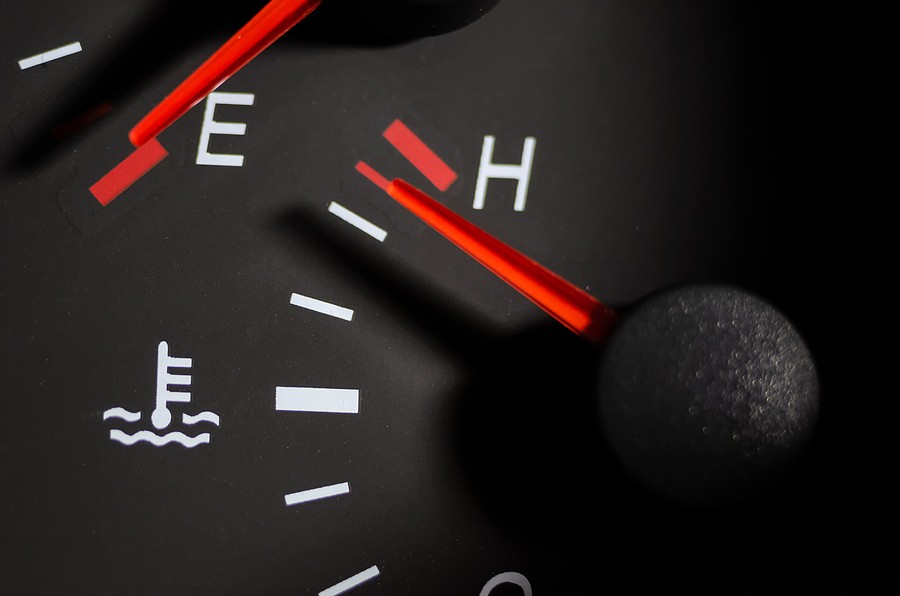The 10 most common symptoms of a bad coolant temp sensor include:
- A check engine light illuminating
- Engine stalling
- Rough idling
- Reduced fuel economy
- Fluctuating temperature gauge reading
- Black exhaust smoke
- Engine misfiring
- Engine overheating
- Problematic radiator fan
- Reduced engine performance
Your vehicle contains many sensors, and manufacturers add more of these sensors as technology advances. The sensors' purpose is to communicate between your vehicle's computer and the different components.
It's not surprising to deal with a problem in one of those sensors. When this happens, you'll see a significant change in the behavior of your vehicle, especially if this sensor is very critical, like the coolant temp sensor.
Many drivers might underestimate the purpose of the coolant temp sensor in the vehicle, and learning about one or two things about this sensor helps you maintain it and prevent major catastrophic outcomes.
This article describes the 10 most common bad coolant temp sensor symptoms. Once you deal with any of these symptoms, you got to talk to your mechanic immediately and have him either fix it or replace it, depending on its condition.
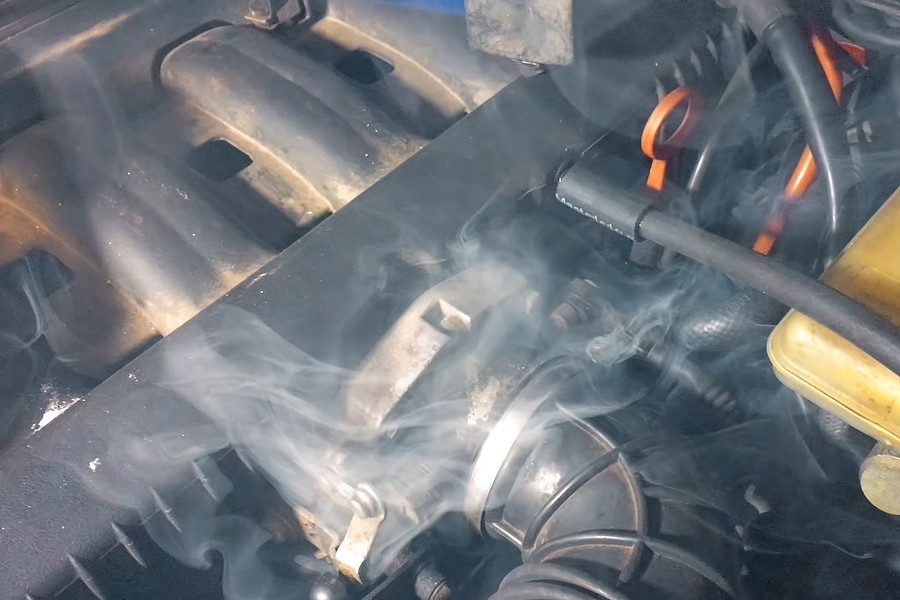
What is the coolant temp sensor?
The coolant temp sensor works as a thermostat in your vehicle. It is responsible for communicating with your vehicle's computer and providing information about the current engine temperature.
If the temperature is getting high and beyond a certain threshold, your vehicle will act immediately, allowing coolant to run around the engine and providing additional ways to protect the engine from excess temperature.
Overtime reviews, the coolant temp sensor can go bad easily, and when this happens, you can get into a lot of issues, especially if you delayed fixing it for quite a good time.
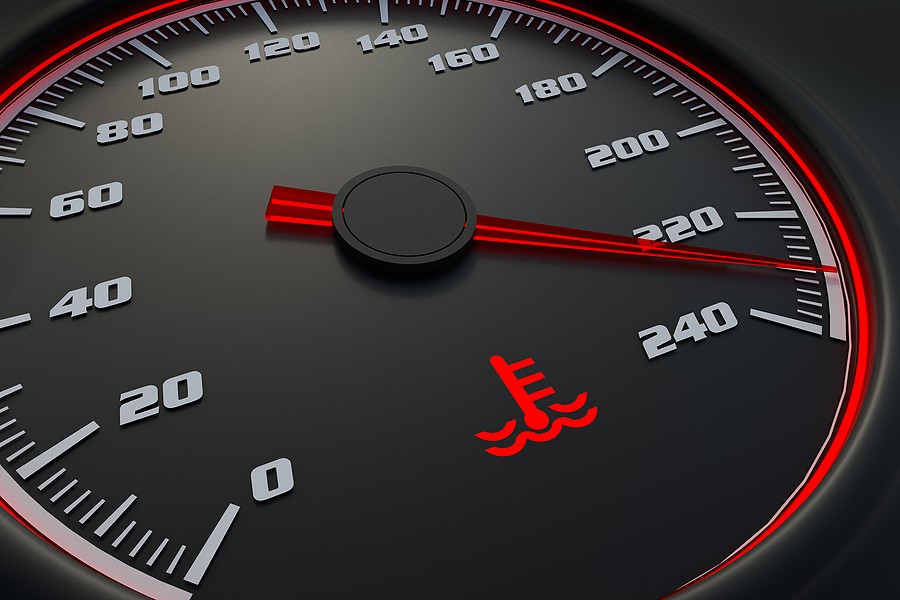
How often should you replace the coolant temp sensor?
Typically, you would need to change the coolant temp sensor once every 100,000 miles. However, you get a check with your vehicle's Owner's manual because sometimes certain brands might have a different lifespan of certain components.
You can also check with your mechanic, who is more familiar with your vehicle and can provide you with more details about the current condition of your sensor and whether you get out to replace it soon or not.
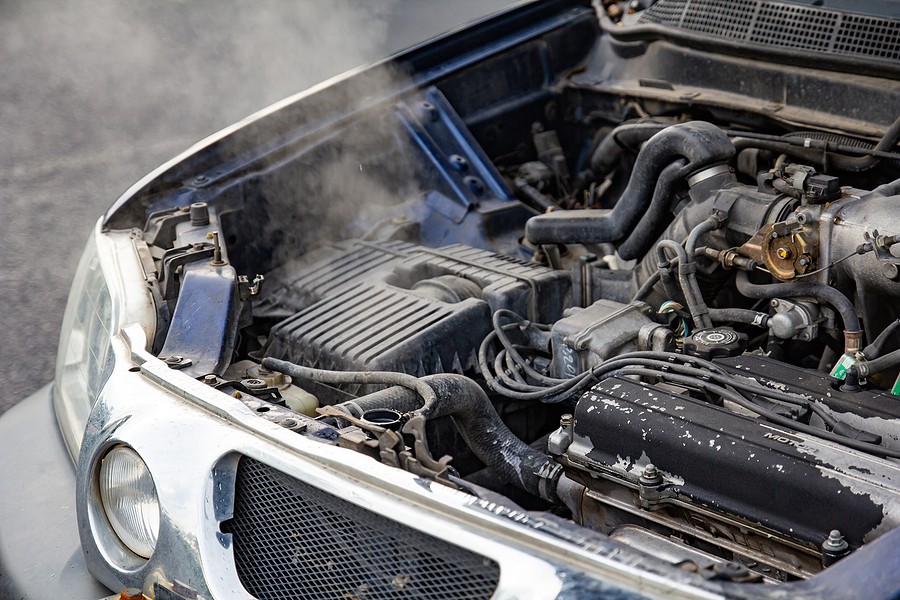
10 symptoms of a bad coolant temp sensor
Although most older motive experts recommend replacing the coolant temp sensor once every 100,000 miles, it's not always the case, and this sensor might go bad before then. Thus, it is critical for you as a driver to understand any symptom that could provide you with some clues about whether the sensor is failing or is about to fail.
The good thing is that automotive experts put together intensive work and research to determine the most common symptoms of a bad coolant temp sensor. Our team conducted an in-depth review of all available information and provided you with a detailed list of these symptoms:
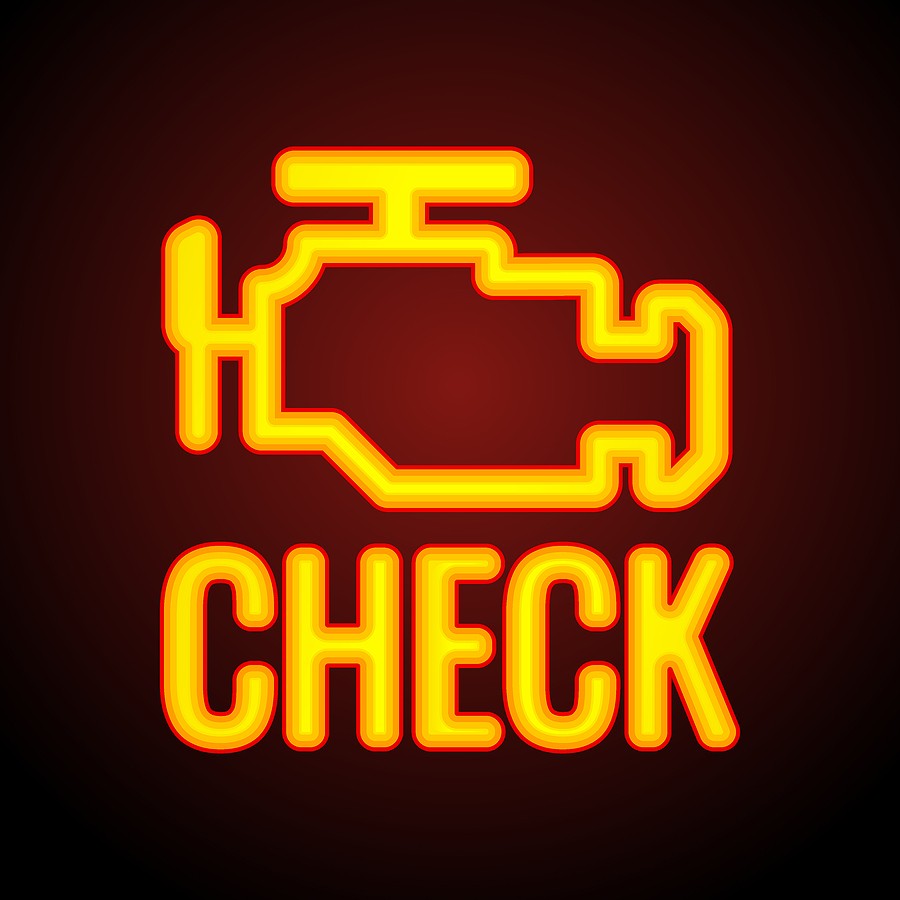
1. A check engine light illuminating
A check engine light illuminating is the first and most common symptom of a bad coolant temp sensor. The check engine light is one way for your vehicle to communicate with you and give you some warning signs about internal problems.
Sometimes the check engine light might be linked to a minor problem, and you can fix it yourself without needing a mechanic. However, in many situations, the check engine lights can't illuminate because of a catastrophe problem happening internally.
That's why automotive experts always recommend taking the check engine light seriously and never ignoring it anytime.
One of the common reasons for your check engine light illuminating could be a bad coolant temp sensor. Before you assume that, your mechanic needs to thoroughly inspect and confirm that no other problems are triggering the check engine light.
Typically, your mechanic should have a scanner that reads into the vehicle's internal computer and translate the check engine lights into specific arrow codes that can then be interpreted and provide details about the root problem.
2. Engine stalling
When your coolant temp sensor is not in good condition, it's not surprising to deal with situations where your vehicle stalls subtly. Vehicle stalling is never a good situation because it can easily get you involved in major car accidents, especially if you cannot control your vehicle.
It's important to note that engine stalling is a general problem that might be linked to a long list of potential culprits. Therefore, you also need to check with your mechanic and have him confirm that what's happening in your engine is related to a bad coolant temp sensor.
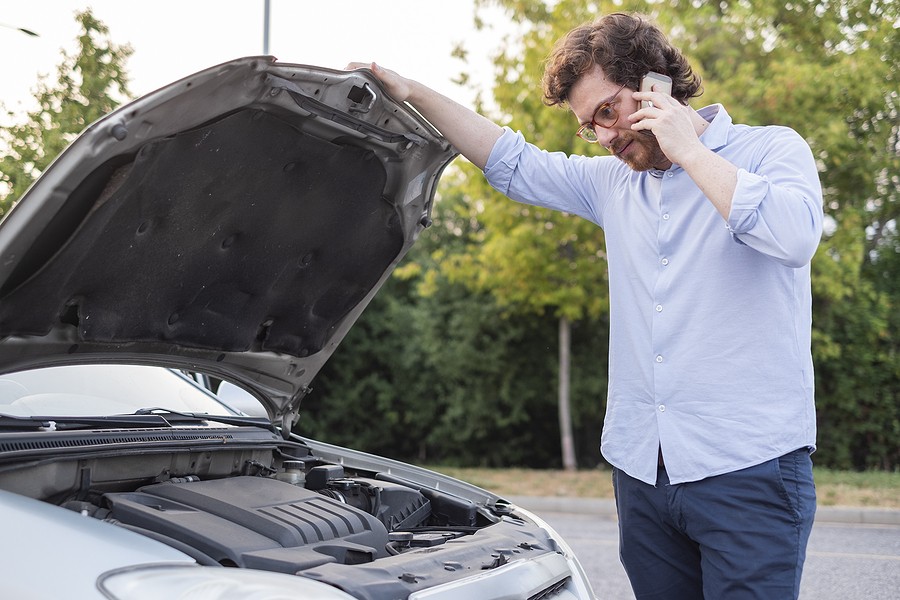
3. Rough idling
Aside from the engine stalling, you might notice that your vehicle idles weirdly. Dealing with rough idling is critical and can always indicate an internal problem.
Sometimes your vehicle might have rough idling because of a problem in the engine itself. Still, it could be a minor component like the temp sensor causing the situation in many instances.
4. Reduced fuel economy
When your vehicle is not performing properly and is over-stressed because of the issue with the sensor, you'll notice a significant reduction in the fuel economy.
Some drivers might not pay close attention to the vehicle's fuel economy, but a good way to check if you're having an issue is when you notice going to the gas station more frequently than before.
Have your mechanic perform a detailed inspection and determine whether your fuel economy issue is related to a bad temp sensor or something else.
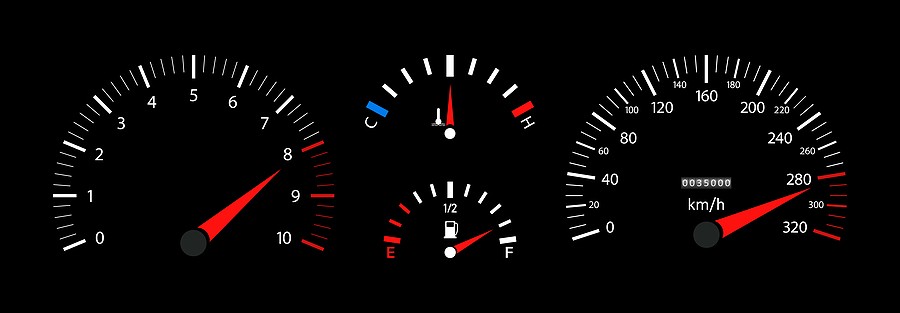
5. Fluctuating temperature gauge reading
Unsurprisingly, suppose the temp coolant sensor is not working properly. In that case, it'll be hard for your vehicle to understand its current temperature reading, and that's why you'll notice that the temperature gauge reading is fluctuating.
For example, as you start your car and once you continue driving, you might see that the temperature is low. However, you might suddenly notice that the temperature spikes without clear reason.
This temperature fluctuation could clearly signal an issue in your coolant temp sensor.
6. Black exhaust smoke
If you decide to ignore a bad coolant temp sensor for a longer time, you will start noticing some more complicated and critical consequences.
For example, you might notice that the exhaust smoke coming out of the tailpipe is black, which is not normal in any modern car.
Your vehicle shouldn't create a cloud of smoke as you drive it unless you're starting on a cold morning. However, dealing with black exhaust smoke is an extremely important symptom you must watch.
While this symptom might indicate an issue in your coolant temp sensor, it might also indicate some major complicated problems like a blown-up head gasket.

7. Engine misfiring
If your engine is continuously over-stressed, it might not receive the right air-to-fuel mixture ratio, which might cause engine misfiring.
Again, engine misfiring is another general problem that could happen for many reasons. Thus, you cannot immediately assume it's about the coolant temp sensor unless your mechanic confirms.
8. Engine overheating
If you notice that your engine continues to overheat, you must check the whole cooling system and probably investigate some of the sensors, like the coolant temp sensor.
Engine overheating could happen because of a coolant leak, bad thermostat, and more problems pure new paragraph; it could be a combination of multiple problems happening at the same time, and if that's the case, your mechanic needs to fix everything that's going on wrong to get your vehicle going again. Otherwise, you are working the engine, and you can easily get into situations where your engine might blow up.
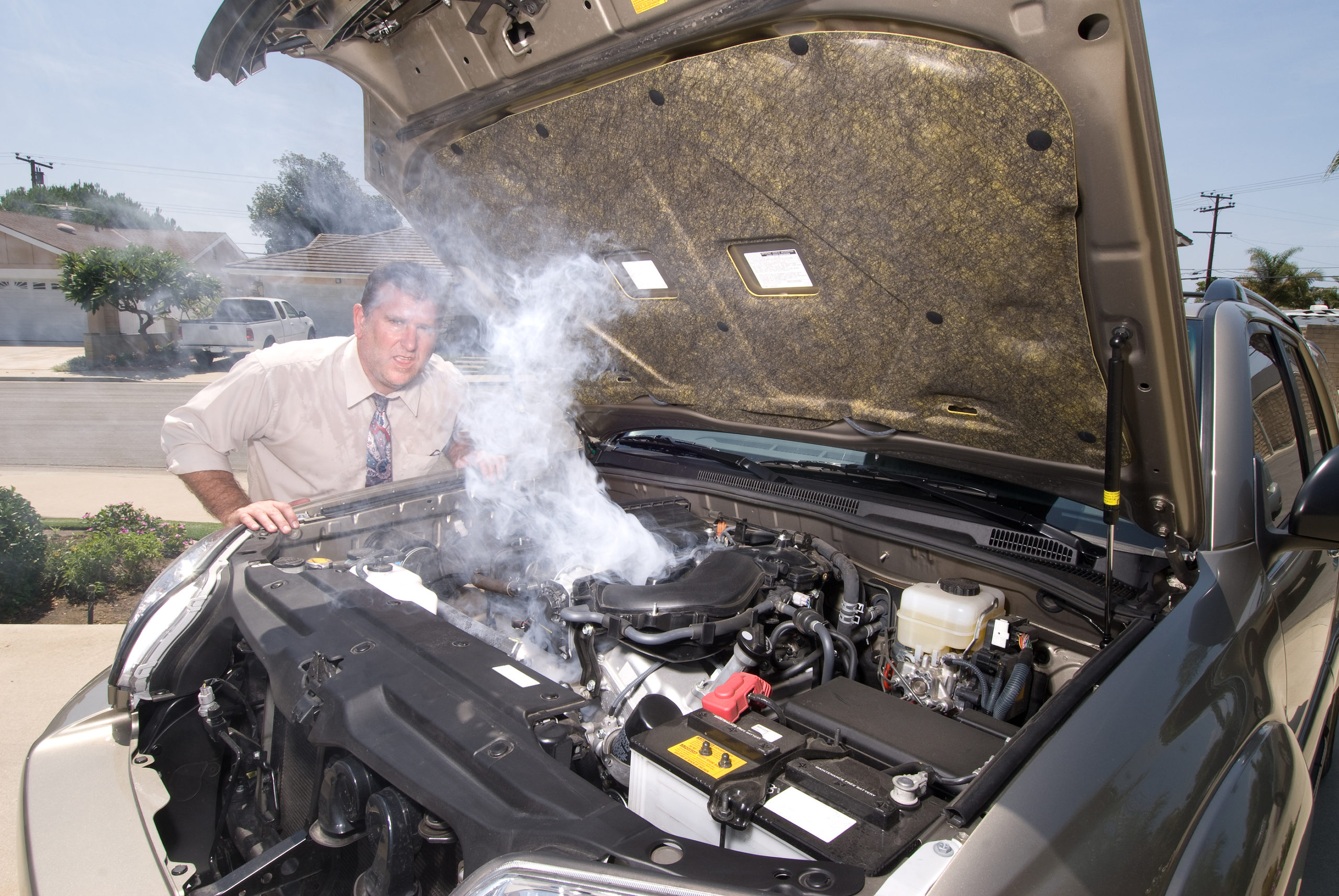
9. Problematic radiator fan
Did you know that a bad coolant temp sensor impacts the engine temperature and some other surrounding components? The radiator fan is one of the first components that might go bad immediately after this sensor fails.
The radiator fan might not necessarily get damaged, but it might not work properly whenever you need it.
This fan is supposed to work whenever the engine's temperature exceeds a certain threshold. However, if there is no communication between your engine and the vehicle's computer, how will this fan understand when to work? Therefore, it's not surprising to know that about coolant temp sensor resulted in issues in your radiator fan.
10. Reduced engine performance
Finally, if your engine continuously faces extreme temperatures and there's no system to cool it down below the maximum threshold, your engine will be continuously under stress, and that will cause a significant reduction in the incidence performance.
Note that this reduction in your engine performance could be a problem because of multiple interacting components. For example, if your coolant temp sensor fails, it can result in other damage to more components, and that's why your mechanic needs to fix all problems at once to get your vehicle working again.

Bad coolant temp sensor causes
As we mentioned, your coolant temp sensor is expected to last up to 100,000 miles. However, we also mentioned that there might be situations where this sensor would feel prematurely.
It's important to note that the sensor will not fail unless there is an external factor.
For example, here are the three most common causes of a coolant temp sensor failure as reported by automotive experts:
1. Troubles with the connections
The coolant temp sensor must be connected to the system properly. If there's any issue with the connections, this might reduce the lifespan of this sensor and result in premature damage.
2. Coolant contaminations
You need to flush out the coolant between now and then and according to what's specified new vehicles owner's manual. If you delayed this coolant flush or change, the coolant would contain many contaminants that could damage many of these sensitive internal components like the coolant temp sensor.
3. Normal wear and tear
Finally, your vehicle components are not designed to last forever, and there will be a point of time where they fail. Therefore, some normal extra wear and tear might impact the sensor, which is why it will fail prematurely.
Therefore, the best thing to do is to follow the recommendations new vehicle owner's manual and keep up with regular maintenance. This way, you delay the major car problems as much as possible and prevent unnecessary repair costs.

Final thoughts
Temperature is one of the worst enemies that could impact any engine. Multiple sensors and systems work together to ensure your engine is not extremely hot.
Every driver needs to maintain the coolant temp sensor, which determines how and when your engine temperature is reduced. Unfortunately, there are many instances where this sensor might fail prematurely, so you must understand the main symptoms of a bad coolant temp sensor.
The article provided a detailed summary of each symptom; whenever you notice any of them, you must talk to your mechanic immediately.
If you're a mechanic suggesting extremely expensive repair costs, that's not the end because you can always put your car for sale and use its payment to buy a better vehicle.
Are you looking to sell a vehicle that has overheating problems? Did you try finding private buyers and give up? Then, Cash Cars Buyer is here to help you!
Cash Cars Buyer is one of the top-rated car removal companies in the nation that guarantees to pay you the top dollars and provide you with free towing despite your living location around the United States.
Our process is very straightforward and doesn't take more than a couple of days to remove your car safely and for the most money.
All it takes you is to:
- Describe your car's type and condition
- Receive our instant free quote
- Accept the quote
- Get your car removed and receive your cash payment on the spot!
To learn more about our process and team, you can reach out to us by calling us at (866) 924-4608 or by visiting our home page and clicking on the free instant online offer.

